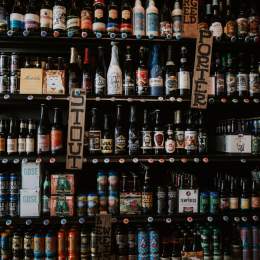URBB: the cost-cutting measures saved the company an estimated Ç3mln
“The economic crisis pushed us to rethink business strategies, which includes many changes I consider necessary to preserve the “health” of the company. The biggest challenge was cutting costs, for which we outlined a plan that consists in several steps, such as renegotiation with suppliers (raw materials, logistics, energy-saving, media, etc), minimize fuel consumption, improve productivity, and avoid wasteful spending, to be more precise, to adopt a cost-conscious approach in order to keep providing competitive prices to clients and avoid price markup”, said Shachar Shaine (photo) chairman of URBB&Carlsrom Beverage.
The cost-cutting program saved the company an estimated €3 billion, amount that partially compensates the currency exchange loss. Furthermore, URBB managed to keep prices at the same level as 2008 and avoided the reduction of marketing spending for 2009.
URBB divided all expenses in two categories: “must-have” and “nice-to-have”. “We are trying to spend money only on must-haves. I think ad spending in case of our brands is a must-have. We have strong brands known across the world and we must keep consumers’ interest alive”, said Shaine.
JTI: investments and increase in exports
“We plan to invest €30 mln over the next two years in two production lines and increase the use of automated solutions in the manufacturing process at JTI facility in Pipera. As for exports, if until recently only 5% was destined for exports, now, a fifth of the production output is shipped to external markets. This share is expected to increase by 15% in the future”, said Gilda Lazar (photo), corporate affairs director at JTI Romania.
The increased use of automated solutions in the production process, she continued, will lead to a professional development of operators, improvement of staff efficiency and of workplace safety.
“The investment is expected to boost production output by circa 25% compared to 2008. As for exports, we will make our products known across 35 countries, from Canary Islands to Scandinavia, from Ireland to Turkey and from Australia to United States”, Lazar added.
Cost-reduction measures in cosmetics
L’Oreal Romania has thus followed some strategic cost-management lines.
“Above all, L’Oreal’s top objective is to innovate, whether it’s economic crisis or not. We view crisis as an opportunity to achieve objectives in a shorter amount of time. Therefore, since the beginning of this year, our divisions have been very lucrative in terms of new products launched. We also have promotions and we save our media spending for the main product categories”, said Matalon.
Another top cosmetics company, Oriflame Romania, has put in place a broad cost-reduction process after 2009 budget was passed, which included: renegotiation of rents, reassessment of the distribution system, reduction of supply costs, and relocation of costs on consumer interaction areas, reduction of investments in conventional advertising, shifting communication to online and marketing direct.
Tymbark Maspex: Improvement of cost-effectiveness must be a natural, normal and permanent process
“We haven’t adopted special strategies to improve cost-effectiveness when the economic crisis worsened. Safety measures addressing cost monitoring have been in place all the time. We are convinced that these actions must not be targeted for a certain amount of time. It should be a natural, normal and permanent process”, said Krzysztof Grabowski (photo), chairman of Tymbark Maspex Romania.
























































![HR [PLAY] Tech Workout - 11...](https://www.wall-street.ro/image_thumbs/thumbs/973/973fe0a3888d417feff63de42e814180-260x260-00-65.jpg?v=1713584810)










